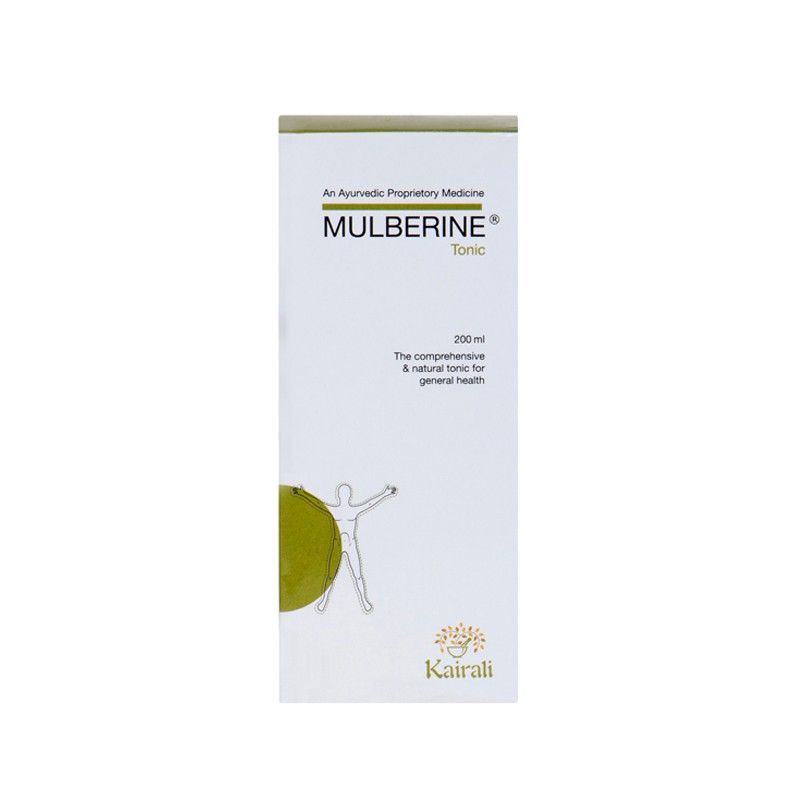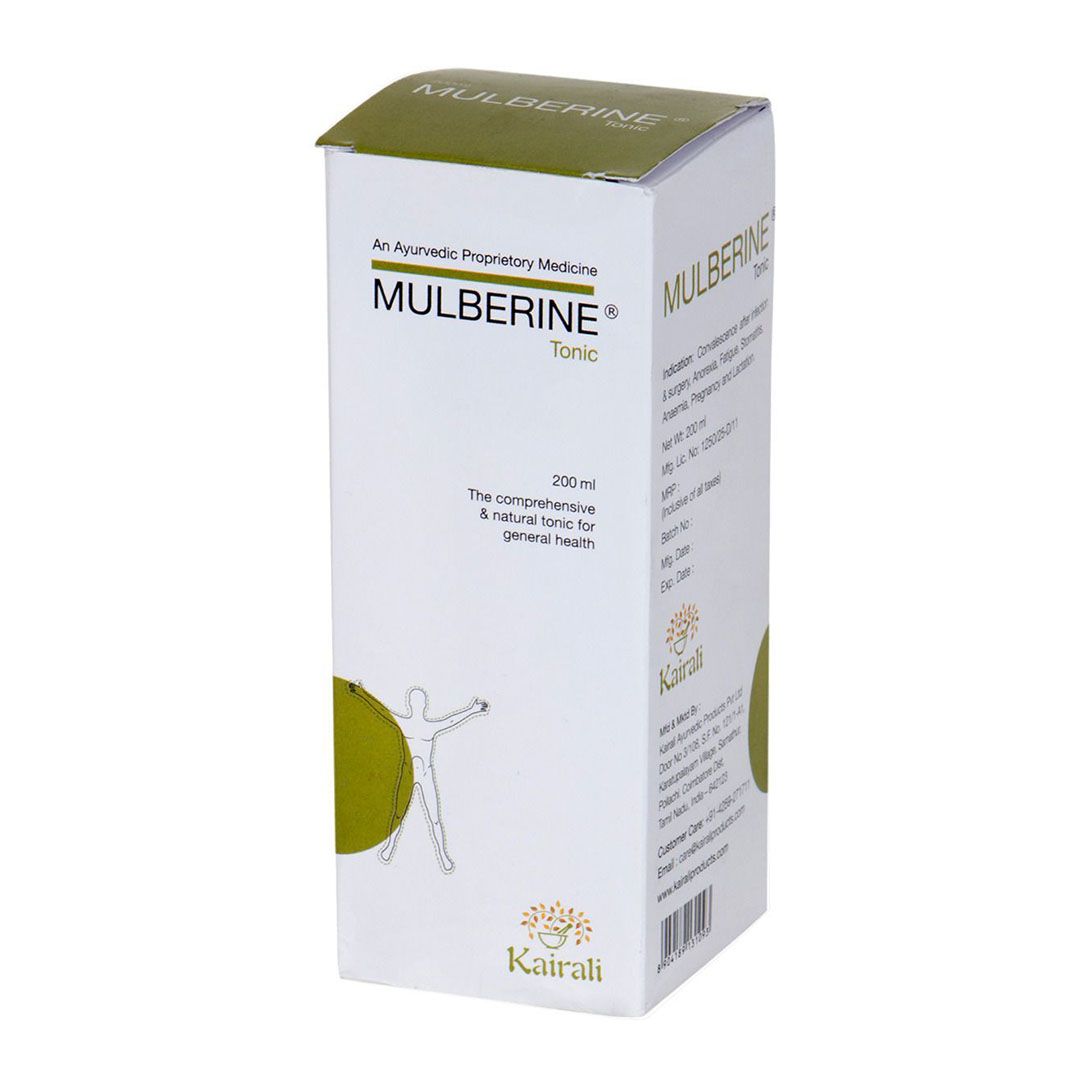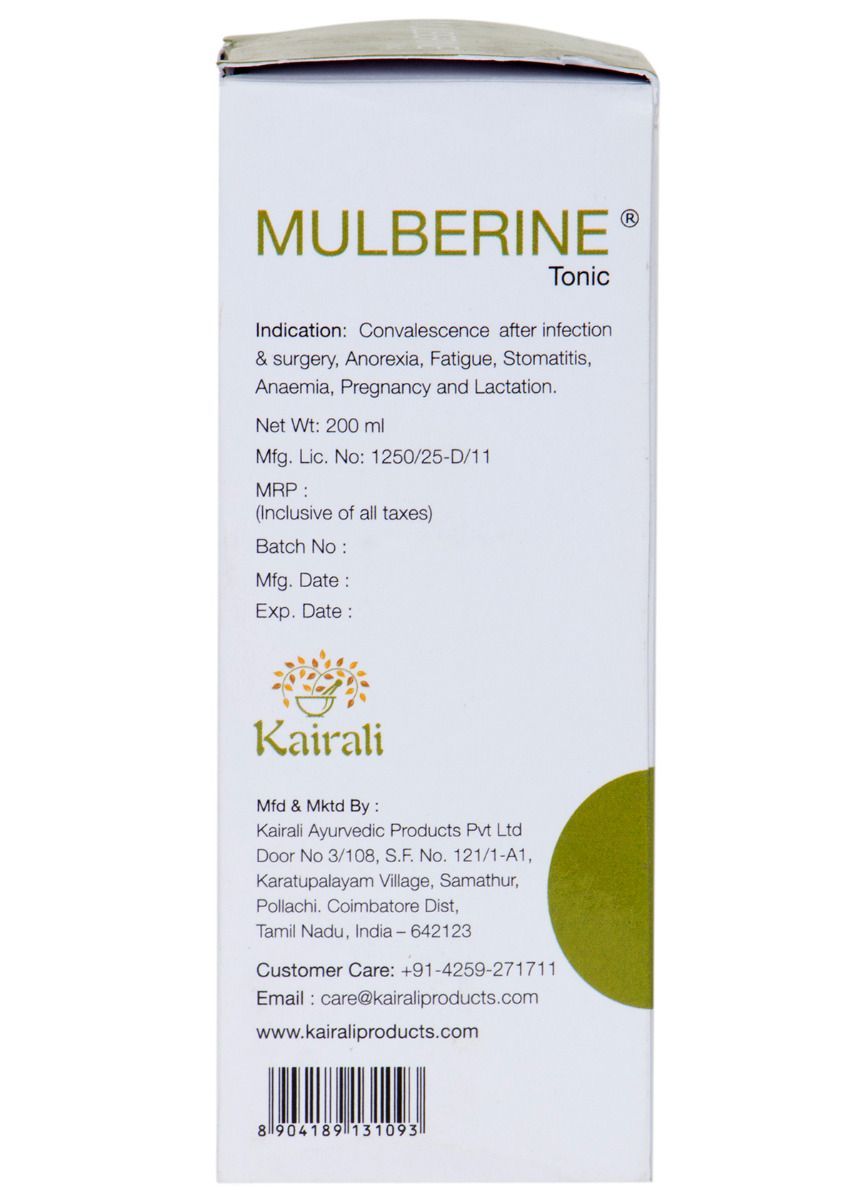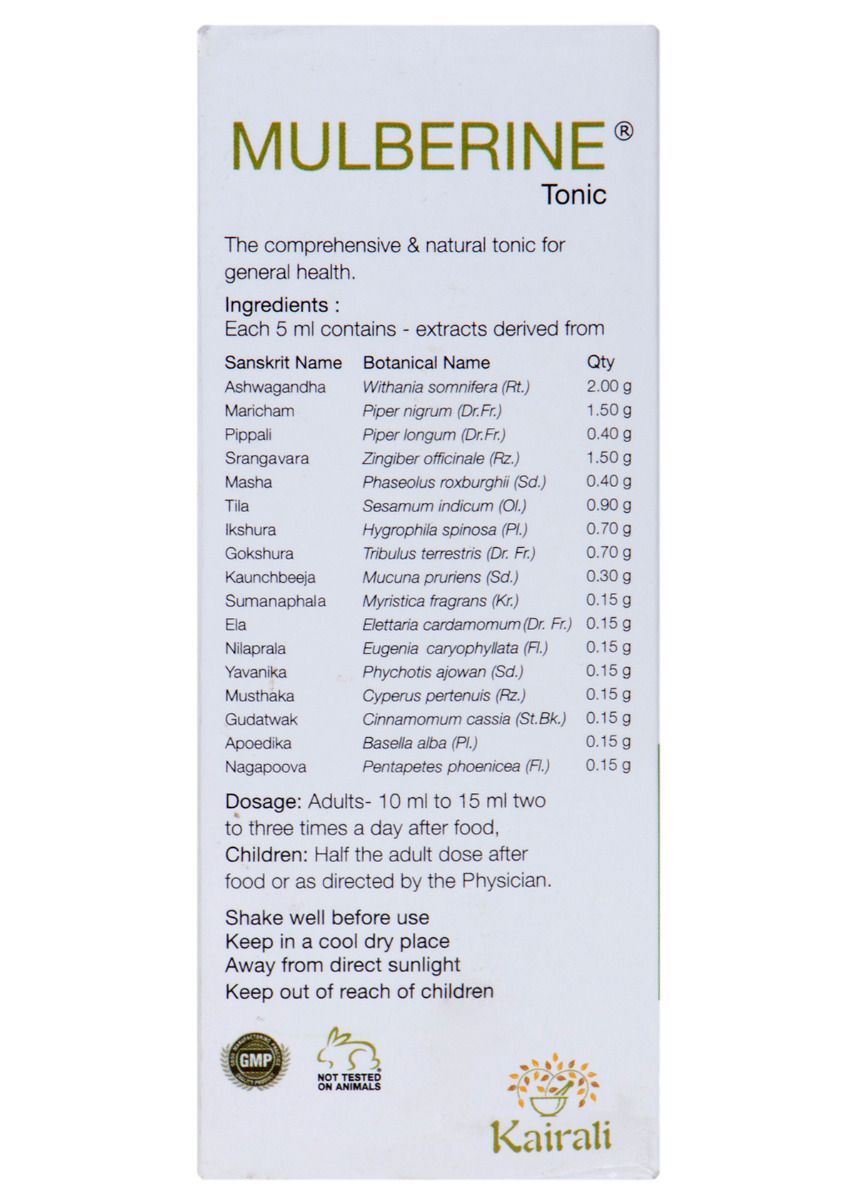Best Ayurvedic Health Tonic for General Weakness and Fatigue
Mulberine Tonic - 200 ml
Mulberine Ayurvedic health tonic is an Ayurvedic multivitamin syrup with natural vitamins, minerals and anti-oxidant properties. It is the best tonic for overall physical and mental health that helps in recovering from general weakness and fatigue. It is mostly used for anaemia, loss of appetite, pregnancy and lactation.
Description
Kairali's Mulberine Ayurvedic health tonic is a 100% natural multivitamin syrup enriched with nature’s best herbs. It is the best Ayurvedic tonic to strengthen the body system against the effects of stress, fatigue and general weakness and act as a heathy tonic for growing children.
Mulberine helps to improve immunity, stamina, strength, vigour, vitality and mental health. It treats digestive weakness, loss of appetite, anaemia and general debility. Mulberine is a very beneficial tonic for women in pregnancy and hormonal problems.
It is a trusted and completely safe Ayurvedic tonic to treat paediatric and geriatric cases. It is the combination of various potent herbs like Aswagandha, Piper Nigrum, Pippali, Musthaka etc.
The natural Key ingredients of Mulberine Tonic are:
- Aswagandha: - It has excellent anti-oxidant properties and helps to reduce anxiety and stress, boost stamina, vitality and vigour.
- Piper Nigrum (black pepper): - It is a good source of magnesium, vitamins, iron and fiber. It treats digestive issues, flatulence and bloating.
- Pippali: - It helps to improve appetite, digestive functions and support healthy liver. It is a powerful rejuvenating herb that strengthens and nourishes the body.
BENEFITS:
- Helps in attaining a healthy body.
- Helps to fight stress and strain.
- Improves vigour & vitality.
- Treats weakness & fatigue.
Direction of Use
Adults: - 10 ml to 15ml two to three times a day after food.
Children: - Half the adult’s dose after food or as directed by Physician.
Get Free Ayurvedic Consultation with our Doctors.
Ingredients
| Composition : Each 5 ml contains - extracts derived from | ||||
|---|---|---|---|---|
| Sl No: | Sanskrit Name | Botanical Name | Parts Used | Qty |
| 1 | Aswagandha | Withania somnifera | Rt. | 2 g |
| 2 | Maricha | Piper nigrum | Dr. Fr. | 1.50 g |
| 3 | Pippali | Piper longum | Dr. Fr. | 0.40 g |
| 4 | Srangavara | Zingiber officinale | Rz. | 1.50 g |
| 5 | Masha | Phaseolus roxburghii | Sd. | 0.40 g |
| 6 | Ikshura | Hygrophila spinosa | Pl. | 0.70 g |
| 7 | Gokshura | Tribulus terrestris | Dr. Fr. | 0.70 g |
| 8 | Kaunchbeeja | Mucuna pruriens | Sd. | 0.30 g |
| 9 | Tila | Sesamum indicum | Ol. | 0.90 g |
| 10 | Sumanaphala | Myristica fragrans | Kr. | 0.15 g |
| 11 | Ela | Elettaria cardamomum | Dr. Fr. | 0.15 g |
| 12 | Nilaprala | Eugenia caryophyllata | Fl. | 0.15 g |
| 13 | Yavanika | Phychotis ajowan | Sd. | 0.15 g |
| 14 | Musthaka | Cyperus pertenuis | Rz. | 0.15 g |
| 15 | Gudatvak | Cinnamomum cassia | St. Bk. | 0.15 g |
| 16 | Apoedika | Basella alba | Pl. | 0.15 g |
| 17 | Nagapoova | Pentapetes phoenicea | Fl. | 0.15 g |
2 Reviews








